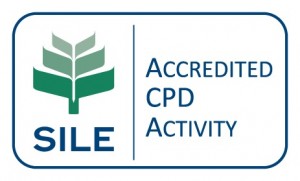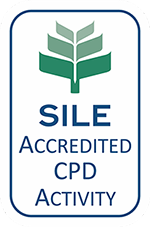Executive Programme 2025
Artificial Intelligence and Data Protection
[Webinar]
Speaker’s Profile

David N. ALFRED
Director, Drew & Napier LLC
David N. Alfred is a senior technology lawyer with over 25 years’ experience advising on matters relating to the digital economy, digital technology, telecommunications and the Internet. He has advised extensively on topics such as development of data protection laws in Southeast Asia, cross-border data transfers, data breaches, cybersecurity audits and cyber governance, data protection management and AI regulation.
David is presently Director and Co-Head of Data Protection, Privacy and Cybersecurity at Drew & Napier LLC and a member of the firm’s Artificial Intelligence and Digital Trust practice. He was previously the first Chief Counsel of the Personal Data Protection Commission and Chief Counsel at the Infocomm Media Development Authority.
David holds LLB and LLM degrees from the National University of Singapore and an MBA from the University of Chicago. He is recognised as a Senior Accredited Specialist (Data and Digital Economy Law) by the Singapore Academy of Law and a Fellow of Information Privacy by the International Association of Privacy Professionals.
This seminar explores key issues and practical considerations relating to the governance and regulation of artificial intelligence and machine learning as well as the impact of data protection laws and other regulatory frameworks.
Artificial intelligence (AI) was first conceptualised in the 1950s and has gone through successive rounds of “boom” and “bust” periods. The current boom has arisen, in part, due to advances in machine learning which have caught the public imagination. There have been some seemingly amazing successes, for example, through the use of Large Language Models (LLMs) which allow for a human-like ability to process natural language, as well as some spectacular failures, for example, in how LLMs are prone to “hallucinations”, where they “create” facts or information that apparently does not exist. In short, while AI and machine learning shows great promise to benefit mankind, it also carries risks that it may fail in unexpected ways.
One key distinguishing factor in the current rise of AI as compared with previous advances is in the use of large amounts of data to train and use AI models. This has given rise to concerns that data, and especially individuals’ personal data, may be used or misused in a manner that may cause harm to individuals and society at large. Challenges with understanding how AI and machine learning work only serve to increase the apparent risk and level of alarm over the use of AI.
Organisations seeking to use AI, perhaps together with their own databases, are thus faced not only with the technical difficulties of how to integrate AI into their processes and systems, but also legal and governance challenges in the process of developing and implementing an AI solution.
This seminar broadly examines the interaction of AI and key legal and regulatory frameworks and considers how an appropriate approach to governance and accountability may assist organisations to better understand the risks and better realise the opportunities afforded by AI. Some of the topics that will be covered include:
- Key features of AI and how they may create risks for organisations and individuals.
- Requirements of data protection law relating to the use of AI.
- Governance of AI and the role of data ethics in addressing AI-related risk.
- Legal and non-legal approaches to governing the use of AI.
Date:
Wednesday 23rd April 2025
2:00 pm to 4:00 pm
Duration:
Total 2h
Location:
Online format – Zoom webinar
Programme Overview
DAY 1 Wednesday 23rd April 2025
(30min)
- Historical Context.
- Advances in Machine Learning, Successes and Failures, Risks for Organisations and Individuals
(30min)
- Data Usage in AI, Data Protection Concerns, Legal Requirements
(30min)
- Governance Frameworks, Role of Data Ethics, Case Studies
(30min)
- Legal Approaches, Non-Legal Approaches, Balancing Innovation and Regulation
Fees:
- SGD 180
CPD Accreditation:
CPD points: 2 Public CPD Points
(TBC)
Practice area: Data Protection & Privacy
Training category: General
Participants who wish to obtain CPD Points are reminded that they must comply strictly with the Attendance Policy set out in the CPD Guidelines. For this activity, this includes logging in at the start of the webinar and logging out at the conclusion of the webinar in the manner required by the organiser, and not being away from the entire activity for more than 15 minutes. Participants who do not comply with the Attendance Policy will not be able to obtain CPD Points for attending the activity. Please refer to http://www.sileCPDcentre.sg for more information.



